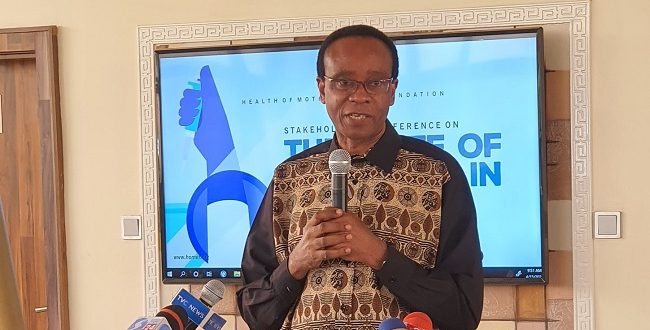The Federal Government has been blamed for its failure to put an end to the inferno at its Ororo-1 Well at OML95 in Ondo State, three years after the fire had burned continuously thus endangering the lives of the Awoye community in Ondo State.
Speaking at the screening on Monday of a documentary film on the plight of the community in Lagos, Nnimmo Bassey, Executive Director of Health of Mother Earth Foundation (HOMEF), described the inferno as a symbol of a burnt national conscience. He said, “It represents a huge discounting of the lives of the people, their culture, and their ecosystem. We are seeing the blatant burning of fossil gas and the spilling of crude oil in disregard of the health of the planet at a time when urgent climate action is needed. There is no word to describe this horrid debacle. Ororo-1 is a crime scene that needs international attention and action since the Nigerian government is asleep on it.”
The documentary titled: Ororo Inferno: A tragic odyssey of injustice and environmental destruction, shows the despoilation of environment and fauna of Awoye community and how the people had been driven out of their homes by the abandoned well and the searing burning fire which has been harming the marine ecosystem and hampering fishing activities in the communities.
The oil well was operated by Chevron in 1986 but was later abandoned. However, the Department of Petroleum Resources (DPR), had last year promised to extinguish the fire but this has not happened.
Speaking at the event, the Executive Director of Corporate Accountability and Public Participation Africa (CAPPA), Akinbode Oluwafemi, decried the fact that the host community was bearing the brunt of the oil spill of which it was not the cause. He asked. “Why should communities be punished for a sin they didn’t commit? The host community bears the brunt of this issue. This video challenges the government and its agencies to respond and save them.”
Members of the Awoye community from Ondo State who were at the screening of the movie stated their plights saying the fire and spill have combined to drive them away from their ancestral homes and stopped them from their occupation of fishing farming.
According to Temilorun Ajimisogbe, a fisherman, “We must travel very far into the sea before we find fish. Help us beg the government to find a solution to this issue,” while Mrs. Modupe Ogunbure pleads for assistance saying they have no one to speak for them
Another female Taiwo Ilabiri, regrets that “Awoye is not what it used to be. Food to eat is expensive and difficult to get. There is no good water to drink. Children are no longer going to school. They go to pick periwinkles to survive.”
The film screening was also witnessed by residents of Makoko in Lagos who also said they were also facing the same plights but from land dredgers in the state.


